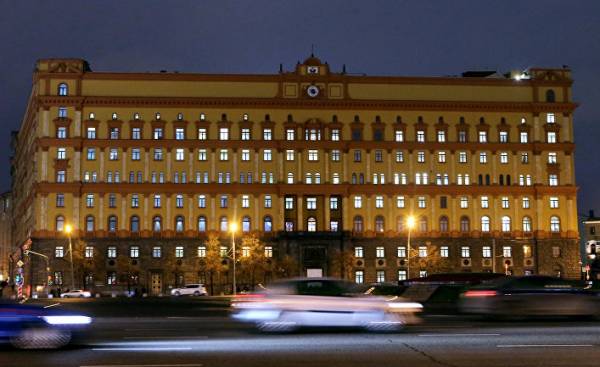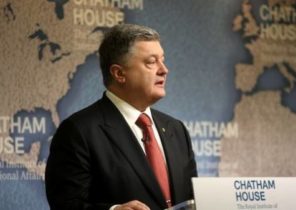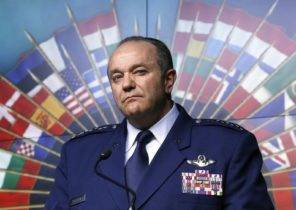
According to experts, centers of martial arts, which teach the art of warfare under the title “system” (developed for the Russian special forces), is widespread in the West and used to create “sleeper cells” in the service of the Kremlin.
Russian intelligence agencies use the fighting arts clubs to recruit potential troublemakers in Germany and other EU countries, warn security experts. According to them, the number of clubs in recent time has increased dramatically and, given the upcoming elections in Germany, “sleeper cells” may stage provocations with violence.
According to Dmitry Khmelnitsky, a Russian expert on espionage, living in Berlin, all the clubs of martial arts, which teach techniques of attack under the title “system,” “directly or indirectly” connected with military intelligence, the GRU, or internal intelligence service, the FSB.
He claims that the GRU uses them to recruit agents in the West just as it was done in the period of the cold war on the territory of the former East Germany where the Soviet base.
During the investigation, Dmitry found the 63 club’s “System” in Germany and several dozen in other countries of the EU, Western Balkans and North America.
Many of the clubs openly boasted its own ties to Russian security services and used the symbolism of the GRU or FSB, for example, images of a bat or George.
“I hope, for the German authorities it is not a secret,” said Khmelnitsky.
63-year-old scientist fled Russia in the former FRG in 1987 after he was brought to trial for what he made the subject of its investigations, the KGB (the predecessor of the FSB).
Their investigation clubs “System” he spent using open Internet sources and with the assistance of Viktor Suvorov, a former GRU officer, who during the cold war were sent into service in Geneva and then moved to the UK.
Khmelnytsky told EUobserver that the presence of “an average of three to five agents in each study group”, we can assume that the “fifth column” GRU in Germany has up to 315 recruits.
According to the main principles of the GRU, in the event of war with NATO, these agents can involve in the attack on targets such as military bases or civilian airports, in addition to their duties may include the organization of the “General terror in the enemy’s rear” or suggestion “of suspicion, uncertainty and fear” residents of an enemy country in time of peace.
“They organize sleeping militant cells,” said Khmelnitsky.
According to him, on the eve of the September elections in Germany Russian agents might try to unleash violence motivated by racism prior to the vote. “They can use to destabilize the situation, for example through inciting violence during anti-government demonstrations or arson, Molotov cocktails at mosques or shelters for migrants,” he said.
In his Khmelnytsky, the network of schools Systemа Wolf presents “special interest” as “rapidly growing” in Europe.
Over the past seven years, the school has opened branches in Germany, Greece, Hungary, Italy, Serbia and Switzerland and created the local branch of the “Night wolves” in Germany. We are talking about the Russian biker club, whose leader is friends with the President of Russia Vladimir Putin.
‘nyts’kyi believes that the school Systema RMA is looking for new recruits among the employees of the German security services.
He noted that five of the graduates club in Bonn he worked in the special unit of the German police.
Khmelnitsky explained his desire to reveal this information to those that do not feel safe, and expects that the publicity may provide some protection. “Is that my address did not sound any obvious threats, but I know who you are dealing with — he said EUobserver. Today GRU feels in a United Germany as freely as once in the USSR.”
In the previous investigation by German journalist Boris Ratsastaa (Boris Reitschuster), published last year, it was also reported that the GRU uses clubs “System” for recruiting agents.
The author referred to the confidential report of a Western intelligence service, which said that the GRU managed to get from 250 to 300 German agents and that the foreign Ministry was surprised by the fact that the German authorities have not taken any retaliatory action.
In an earlier article, published in the German magazine Focus, it was reported that the clubs “System” operate in 30 German cities and what BfV, internal intelligence of the country regards them as a security threat.
The creators of the recently released documentary by German television ZDF also warn about the threat posed by Chechen agents. Senior FSB officer who left the service in 2008, told ZDF that the Russian internal intelligence used clubs of martial arts in Chechnya for recruiting men, who then, under the guise of refugees were sent to Germany. Chechen “illegal immigrants” could “give any order,” said the FSB officer, who asked to remain anonymous.
EUobserver contacted the largest school “System” — “System Ryabko” — with a request to comment on the statements of Khmelnytskyi and Raytshustera.
In a letter without signature sent by e-mail the school office in Toronto, said: “you Heard the charges are the result of someone’s malicious imagination and completely false”.
Elections in Germany
Four months before the elections in Germany, the GRU has been accused of trying to interfere in their results by hacker attacks on German MPs.
“We think that [a cyber attack] campaign, managed from Russia”, — said the fifth of may at the conference in Potsdam, the Director of the BfV, Hans-Georg Maassen. “The decision to use these materials — political. It is, I believe, will be taken in the Kremlin”, — he added.
Intelligence service and the German police refused to share with EUobserver his opinion about whether the Russian special services physical and cyber threats.
“We do not disclose our principles of security,” — said the representative of police of Berlin.
Stefan Meister (Stefan Meister), German expert on Russia, believes that Germany became a target of Russian intelligence in the framework of a broader campaign against the EU, but, according to him, it is unlikely that the Kremlin will go on propaganda and cyber operations.
Meister of the German Council on foreign relations, a think tank based in Berlin, told EUobserver that the Russian General staff and the intelligence services began to think about ways to counter Western influence after the anti-Putin protests in Russia in 2011 and 2012.
According to him, Putin, who was once head of the FSB, felt the object of “attacks” in the West, which the Russian leader accused of organization of protests in Russia.
“In the Kremlin discussed how to repel, how to intervene in the life of our society, how to manipulate public opinion, to use the weakness of the European Union, in order to unsettle him,” said Meister.
According to him, Germany became their “target”, because it supports EU sanctions against Russia and is of vital importance for the economic and political stability of the European Union.
Meister, who took part in the documentary ZDF, added that the German “experts” spoke “assumptions” about what either Putin or the head of Chechnya, Ramzan Kadyrov, could use Chechen agents “to influence the Muslim community in Europe and provide support in the organization of terrorist attacks”. But he added: “In fact the Russian power structures that style of work. They want to weaken the [German] system, to expose its weakness to the public, but their intention is not organization any coup.”
According to him, “the Russians” caused “a panic” and was clearly “overvalued”.
Another expert on Russia adheres to absolutely other point of view.
Eric Cross (Eerik Kross), from 1995 to 2000, who headed the security service of Estonia (KAPO) and knowledgeable about the techniques of Russian spies firsthand, said that last year’s anti-government rally in Berlin already contained signs of “special operations” of the Russian intelligence in order to influence the policy of Germany.
On January 23 last year, the international Convention of the Russian Germans — the Berlin-based group that denies the existence of ties with the Kremlin — organized at the residence of the Chancellor of Germany Angela Merkel meeting with the participation of 700 men and women. The people were urged by the opponents of Muslims and neo-Nazi extremists to join them via Facebook.
The meeting was held simultaneously with the Kremlin-funded propaganda campaign, in which migrants were subjected to false accusations of raping a Russian girl.
“Systematic and aggressive character”
If you leave Germany aside, the investigation of Khmelnytsky showed that clubs martial arts associated with the GRU and the FSB, also spread rapidly throughout Europe.
According to him, the founders of the nine schools, similar schools “System” was “entirely officers of the GRU or the KGB-FSB,” and “intensive” expansion of their activities abroad, observed the last ten years, does not have “apparent natural explanation.”
This expansion looked like “well-designed, large-scale intelligence operations with strong state funding,” he said.
For example, the school “System Ryabko” already has branches in Austria, Belgium, Czech Republic, Estonia, France, Greece, Hungary, Ireland, Italy, Latvia, Luxembourg, the Netherlands, Poland, Portugal, Sweden and the UK, as well as in Germany.
School “Siberian Cossack System” teaches students in Austria, Croatia, Czech Republic, Finland, France, Hungary, Italy, Slovakia, Slovenia, Spain and the UK.
Another school of martial arts associated with the name Vadim Starov, which Khmelnitsky called “GRU officer who retired just a formal procedure”, has offices in Cyprus, Greece and Italy and, according to the scientist, “the most forthright manner” uses the symbols and slogans of the GRU.
Cross, a former head of the Estonian KAPO, believes that the EU authorities should pay more attention to the “special operations” of Russian intelligence. He noted that not so long ago, GRU officers organized a military training for neo-Nazi groups in Hungary — the Hungarian national front and similar groups in Slovakia (Slovak recruits and the Slovak revival Movement).
He also said that last year, the GRU was trying to organize in Montenegro major anti-NATO speech.
Analyzing the alleged cyber attacks by Russian foreign intelligence in the course of the elections in Germany, he said that special operations have a more “aggressive” and “dangerous” character. “A cyber attack can cause great harm, but for the RAID you want to send to the country-the object of the secret agents,” he said.
“Special operations, lately pursued by Russia in Europe, unlike the simple series of random incidents. Here we observe a systematic increase, and it happens not only in the Western Balkans, but also in the rest of Europe,” said Cross.
Mark Galeotti, a British expert on Russia, told EUobserver that sometimes Russian intelligence preporucam your job Russian criminal groups in Europe to hide their involvement. “There is evidence that sometimes Russian intelligence calls for specific services to some Russian organized crime groups,” he said.
In an article published in April, Galeotti from the Institute of international relations in Prague reported that the Russian criminals was performed in Germany for Russian spies “routine” tasks, for example, “conducted a regular surveillance” or transferred “any materials or messages.”
According to him, the GRU and the FSB were used by Russian mafia “to collect operational funds that were on active policy measures (bribes) in Europe and that do not have their own “fingerprint””.
Noting organized by the GRU military training in Hungary and alleged unrest in Montenegro, he said that the mafia is also able to help the “fifth column” of the Kremlin in Europe in the Commission of more serious attacks, if they start fighting.
The possibility of Russian mafia “in the field of smuggling of arms and military equipment” in the EU will be “the Kremlin, especially on the arm,” said Galeotti.
The List Of Putin
Khmelnitsky — the only one not living in Europe of enemies of Putin who does not feel safe even within the borders of the EU or NATO.
Egmont Koch (Egmont Koch), who directed for ZDF documentary about the Chechen agents, told EUobserver that the former FSB officer, in which he was interviewed, wished to remain anonymous out of fear of reprisals.
List of murders committed on Western territory, as is supposed, at the behest of the Kremlin, among others, includes the names of Alexander Litvinenko, FSB defector, who in 2006 was poisoned in the UK, and Alexander Perepelinogo, whistleblower FSB, who died suddenly in the UK in 2012.
The sudden death of the two leading deputies for relations with Russia in Germany Philipp Missfelder (Philip Missfelder) in 2015 and Shockenhoff Andreas (Andreas Schokenhoff) in 2014 — has also spawned a variety of conspiracy theories.
Meister of the German research center told EUobserver that he was familiar with Missfelder and that the Deputy was indeed very ill, but some of his colleagues believe that these two deaths are “worth something”.
Former Russian oil tycoon Mikhail Khodorkovsky, who fell out with Putin and fled to Britain, also said that EU member States should pay more attention to the physical threats from the Russian intelligence.
Echoing Galeotti, he added that if the regime wanted to kill him, probably would charge that Chechen criminals in Austria.
According to Khodorkovsky, the Russian intelligence services have a list of people in Europe, “whose death would be for Putin and his circle nice gift”.
“This list is not so short. It is, of course, not about hundreds of people, but even if you kill all ten, it will force everyone else to think”, — he said, referring to the intimidation of opponents of Putin in the West.
“It’s been 30 years [since the collapse of the USSR] how the West thinks about the Russian special operations, but today he needs to take another look at this threat and to understand its new meaning,” he said.







